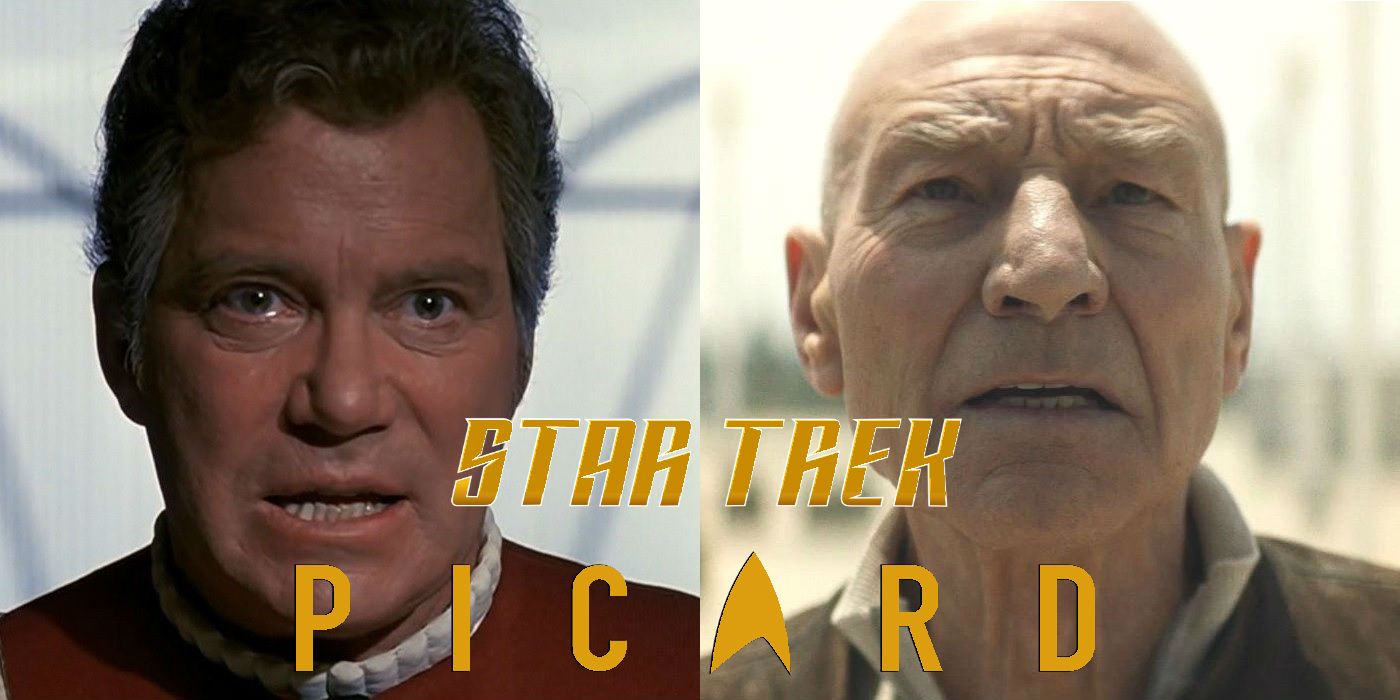
Star Trek: Picard is highlighting a key difference between the Enterprise's two most famous captains, James T. Kirk and Jean-Luc Picard. Alongside Leonard Nimoy as Spock, William Shatner's Kirk was the face of the Star Trek brand when it first started airing in the 1960s, punching, romancing and energizing his way into the the cultural consciousness, first on TV, and later on the big screen alongside the famous Enterprise crew. As the original captain of the iconic ship, Captain Kirk was the blueprint for a Star Trek hero, but his eventual successor was very different.
Debuting in 1987, Star Trek: The Next Generation was a very different beast compared to its predecessor in almost every way, typified by the show's brand new lead. Although initially made with the involvement of original creator, Gene Roddenberry, Picard deviated significantly from the template set by Kirk, and the "which captain is best" debate continues to rage on in 2020. In terms of modern visibility, however, its Patrick Stewart's character enjoying a renaissance at present, as CBS All Access is currently airing Star Trek: Picard, a sequel series centered around the retired Starfleet admiral.
Star Trek: Picard has been fairly revolutionary in its depiction of Roddenberry's world, bearing stronger political leanings, making Starfleet the villains and morphing what fans know about the Borg. However, the new series has also reinforced ideas that have long been a part of the Star Trek tapestry, and one of the biggest is in how Kirk and Picard differ.
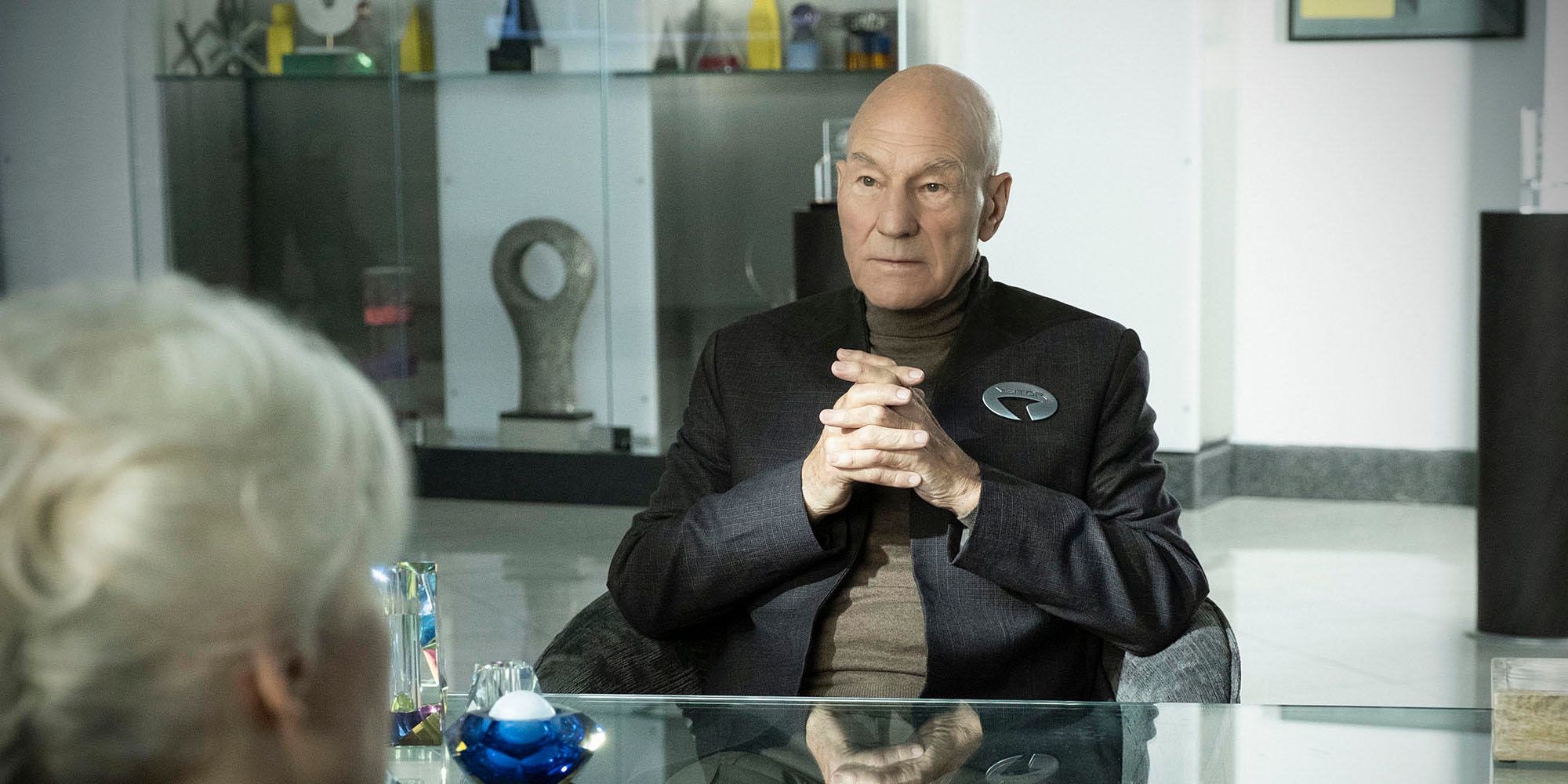
The entire plot of Star Trek: Picard revolves around a disagreement between Patrick Stewart's aging captain and his former employers, Starfleet. After a supernova wiped out the Romulans' home planet, many of the species were left in desperate need of aid, and despite historic tensions between the two, the Federation stepped in to help, forging a tenuous truce with the Romulan Empire. However, when a terrorist attack scuppered the Federation's evacuation plan, the Romulan rescue mission was abandoned, and Picard fought so strongly against this course of action, he resigned in protest.
Picard's reaction to the Romulan plight has been a strangely sympathetic one. The Admiral personally worked to resettle Romulans and took two Tal Shiar runaways into his own home as live-in assistants. After failing to convince Starfleet of their error, Picard essentially shut himself off, deeply resenting the fact that he couldn't fulfill his promise to help the Romulans.
Captain Kirk's reaction during a similar incident was markedly different. In Star Trek VI: The Undiscovered Country, disaster befalls the Klingon Empire when one of their moons is destroyed, leaving the warrior race on their knees, and the Klingons have no choice but to negotiate peace with the Federation, their longstanding enemies. Spock volunteers the Enterprise to lead the mission, but Kirk reacts angrily, uttering "let them die" through gritted teeth in response to Spock's empathetic approach. Two similar scenarios from Starfleet's perspective, but two very different reactions from the Enterprise contingent.
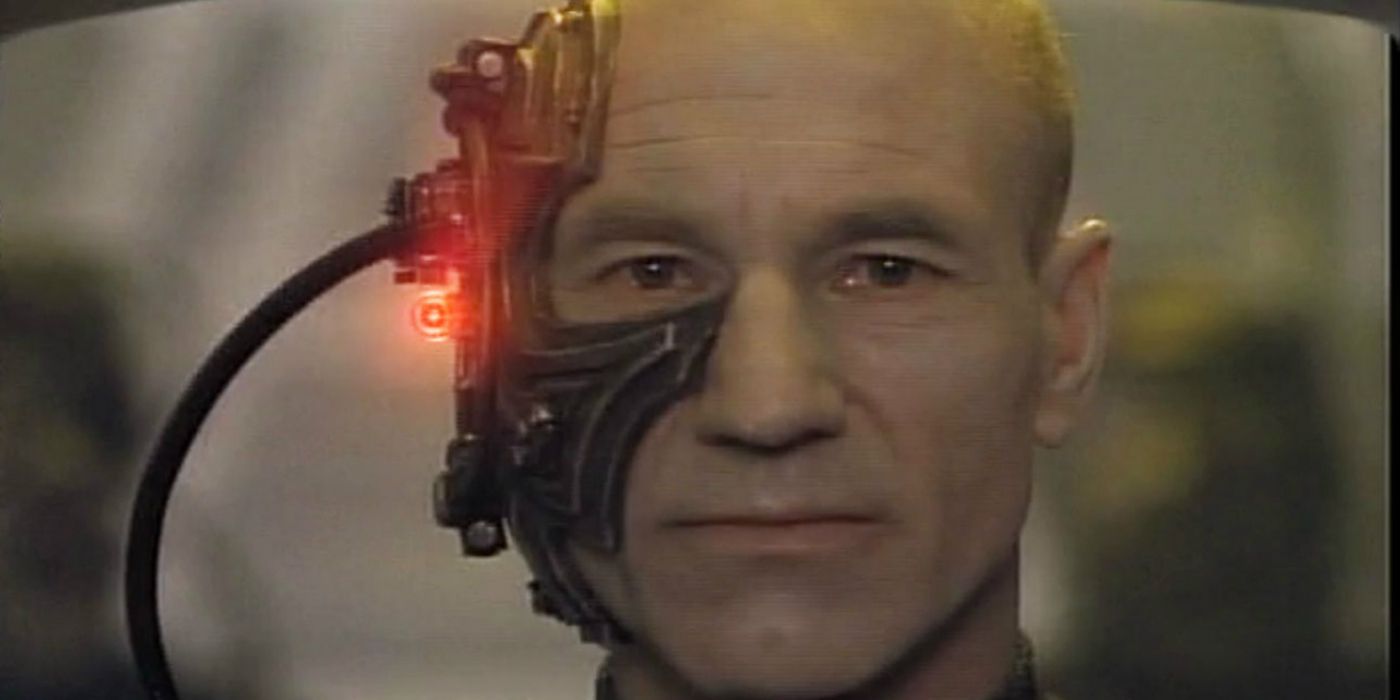
In fairness, Kirk's circumstances are very different to Picard's, namely because of Kirk's son, David, who was brutally murdered by Klingons in Star Trek III: The Search For Spock. Kirk makes very clear that his willingness to abandon the Klingons in their time of need is a direct result of David's killing, rather than a desire to kling on to old hostilities, and Picard himself might empathize with this more than he'd like to admit. Despite his kindness towards the Romulans, Picard has shown a ruthless streak when it comes to the Borg, largely because he was assimilated by them in Star Trek: The Next Generation. Clearly, traumatic personal experiences have impacted both Kirk and Picard in different ways. It should also be noted that, despite the specter of David looming large over him, Kirk did succeed in negotiating peace with the Klingons.
With that said, the Romulans could be considered partially responsible for Data's death in Star Trek: Nemesis, and while Picard admits to grieving his robotic friend for decades, he doesn't harbor a grudge against an entire race quite like Kirk seems to. Picard's resentment towards the Borg comes more from his intimate knowledge of their evil, rather than any deeply-held vendetta. As such, Kirk's reaction to the Klingon calamity and Picard's to the Romulan incident are in stark contrast with each other and highlight two very different approaches to Star Trek lead characters.
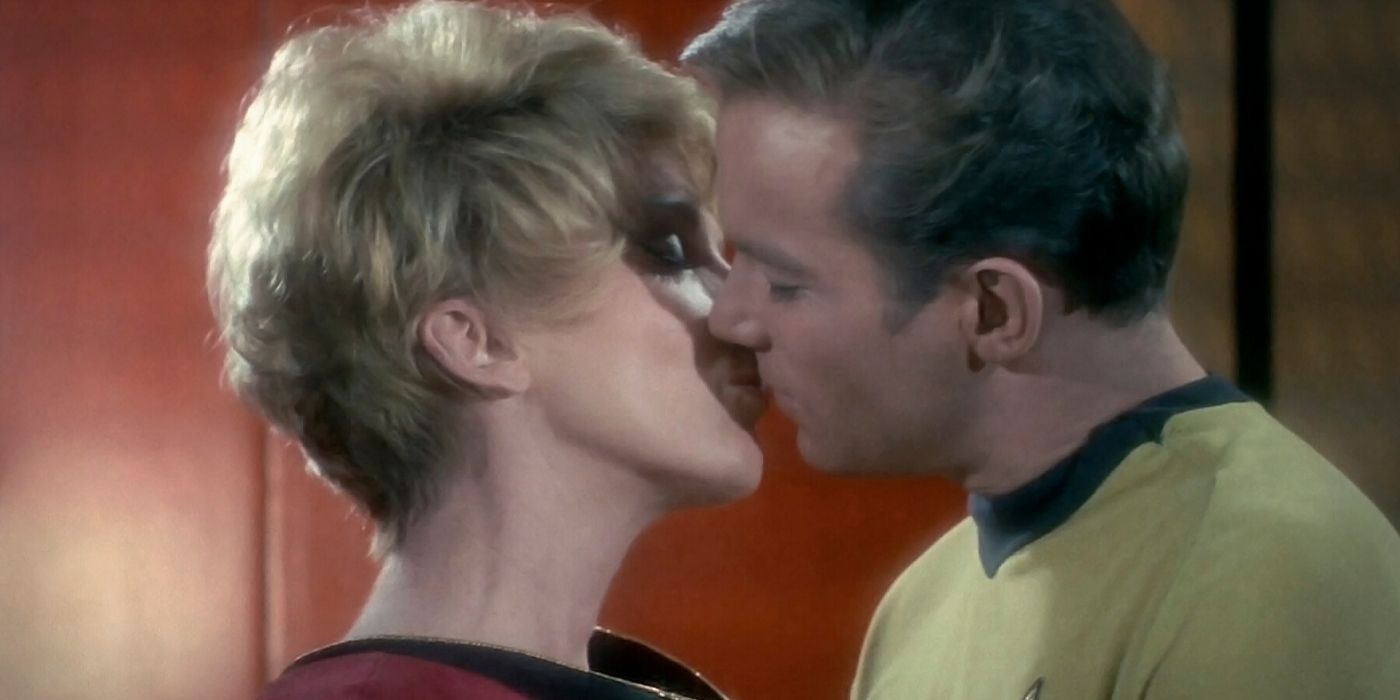
Picard and Kirk's varying reactions to alien species in need aren't merely isolated incidents, but are indicative of their drastically different personalities as a whole. Kirk is famed for his fist fights in the original Star Trek series, popularizing the "Kirk-Fu" school of martial arts thanks to his wonderfully dramatic and overtly masculine combat style. Picard was very much the opposite; Kirk's successor eschewed violence whenever possible, and proved fairly useless at it when forced, such as in his confrontation with Soran in Star Trek: Generations. Kirk and Picard's attitude to aging is also extremely different. As an admiral, Kirk would still partake in skydiving and still wouldn't shy away from a fight, but as seen in Star Trek: Picard, Jean-Luc is content to retire peacefully on his family vineyard. While Kirk goes out to find adventure, Picard waited until the adventure came to him in the form of Dahj.
Given his more violent tendencies, it naturally follows that Kirk is generally more rash as a captain than Picard, whether he was blowing things up, drop-kicking Gorn or talking a computer to death Kirk dived in headfirst. Broadly speaking, Picard was more strategic, surrounding himself with trusted people and (mostly) always taking their advice on board. In a similar vein, Kirk showed less tolerance towards politicians, ambassadors and other officials, whereas Picard was more willing to play ball with these troublesome sorts. This is also highlighted in Star Trek: Picard, when the former admiral visits Starfleet and requests their help in saving Soji - you can bet your last credit Kirk wouldn't have given them the same privilege.
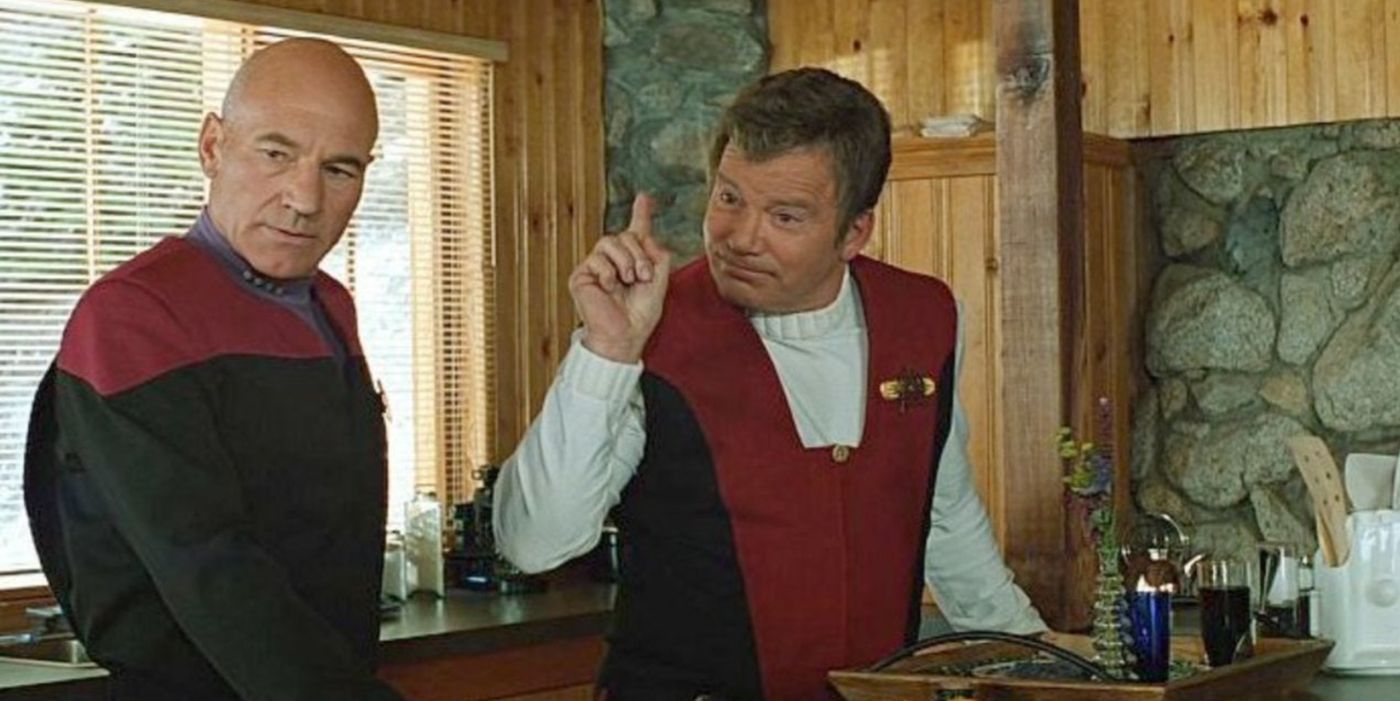
Star Trek is far from the only franchise to regularly switch their leading protagonist, but it's very rare that the difference between two heroes will be as pronounced as between Captain Kirk and Captain Picard. But why was there such a big shift in character from one Star Trek series to the next (generation)?
It could be said that the difference between Kirk and Picard is indicative of the changing times and the evolving tastes of a TV audience. In the 1960s, science fiction on the small screen was nowhere near as sophisticated as it is today, not just in terms of special effects and set design, but in the stories being told. The original Star Trek was never above Kirk enjoying a good scuffle and landing a kiss on the nearest female to round off an episode, whatever other deeper, metaphorical themes were at play. By the late 1980s, the cultural and political landscape had changed. The spirit of rebellion that defined the 1960s had faded and TV audiences were demanding more intelligence from their programming. This is represented in the evolution from Kirk to Picard; the latter offering a thinking-man's version of a Starfleet captain. Kirk was a maverick - a typical 1960s rogue who bends the rules just enough to thrill the audience. Picard was more nuanced, a layered character who was less inclined towards action scenes and more conducive to diplomacy.
That isn't to say Kirk is any less interesting than Picard, of course. The original Star Trek captain and his successor are both fascinating for different reasons, and demonstrate the diversity in the Star Trek franchise. Their evolution is merely part of a bigger trend, and the next stage of this can be seen in Star Trek: Picard, where even more shades of Jean-Luc's character are coming to the fore, and longer-term storylines have replaced episodic adventures. As a byproduct of Picard's latest development, however, the gulf between him and Kirk looks wider than ever before.
Star Trek: Picard continues with "Nepenthe" March 5th on CBS All Access.
from ScreenRant - Feed https://ift.tt/2IjpcOp





No comments: